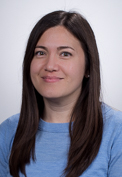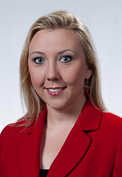Program to Improve Care for Super-Utilizers
A group of faculty and students from the University of Arizona College of Medicine – Phoenix in collaboration with Arizona State University have been selected to participate in a hotspotting program, whose goal is to improve care for patients with complex and chronic conditions.
Interprofessional teams of faculty and students will engage in six-month mentored curriculum and research project through the Interprofessional Student Hotspotting Learning Collaborative organized by the Camden Coalition of Healthcare Providers. Student teams from a range of disciplines will work with two or three patients identified as “super-utilizers” to help address their needs. The teams will work collectively with their patients to develop and implement plans on a weekly basis.
Teams include the Interprofessional Education Program led by LeeAnne Denny, MD; Sandy Kirkpatrick, MSN; Caitlin Cameron, PharmD; Kim Day, RN; Kelly Ramella, MA; Candyce Campbell, LMSW, and Abby Conliffe, LMSW, and the S.H.O.W Initiative led by Jennifer Hartmark-Hill, MD; Michele Feeney, JD; Jean Brown, PhD; Bonnie Ervin; Caryn Unterschuetz, RN, and Liz Harrell, DNP.
 “Interprofessional collaboration occurs best when people from different professions get together to solve problems,” Dr. Denny said. “These teams will be facing significant challenges as they work to identify the issues and generate and implement solutions.”
“Interprofessional collaboration occurs best when people from different professions get together to solve problems,” Dr. Denny said. “These teams will be facing significant challenges as they work to identify the issues and generate and implement solutions.”
The term hotspotting is used to describe the strategic use of data to reallocate resources to a small subset of high-needs, high-cost patients. Dr. Denny, director of the Interprofessional Education Program at the College of Medicine – Phoenix, provided the example of a person who had 48 emergency room visits and 22 CT scans in a year. Often, these people have health care needs that can be better met through other means, such as connecting them to resources, education and regular visits with primary care professionals.
“Members of the health care team must serve as stewards of the health care system for the benefit of all,” Dr. Denny said. “A part of this responsibility includes efforts to provide the resources, education and support necessary to address excessive utilization and to help super utilizers get the care they need.”
Second-year medical student Justin Zeien is among the students participating in the program. Zeien was recruited to represent the disciplines of medicine and public health. Other disciplines represented on their team include health innovation, nursing, recreation therapy, pharmacy, speech pathology, law and social work.
“This program will provide tremendous benefit to my medical education by teaching me how to care for patients with complex health and social needs,” Zeien said. “The program provides valuable opportunities to work directly with hospitals, insurance companies, community organizations and health professionals to improve the care of select patients in Phoenix. By establishing these relationships with various health care players, I will gain a better understanding of Arizona’s health care system and learn how I can help reduce over-utilization of health care services by select patients.”
 Dr. Hartmark-Hill, medical director for the S.H.O.W. Initiative, noted that she and her team are excited to bring lessons learned back to patients experiencing homelessness in the metro Phoenix area.
Dr. Hartmark-Hill, medical director for the S.H.O.W. Initiative, noted that she and her team are excited to bring lessons learned back to patients experiencing homelessness in the metro Phoenix area.
“This approach to care for vulnerable populations needed to bring about health care transformation across systems,” Dr. Hartmark-Hill said. “We have to address social determinants of health if we are to move the needle and improve both population health outcomes and address the rising costs of health care.”
Participation in the program was made possible through the support of the University of Arizona Health Sciences Center for Transformative Interprofessional Health Care and United Healthcare Community Plan.
“Hotspotting is an excellent method to teach students how to work together as a team and serve patients with significant needs who often fall through the cracks of health care systems. UAHS is delighted to support our Phoenix team,” said Sally Reel, PhD, RN, UA Associate Vice President for Health Sciences Interprofessional Education, Collaboration and Community Engagement.
In September, the team will travel to the University of Utah to receive training and officially kick off the program.
About the College
Founded in 2007, the University of Arizona College of Medicine – Phoenix inspires and trains exemplary physicians, scientists and leaders to advance its core missions in education, research, clinical care and service to communities across Arizona. The college’s strength lies in our collaborations and partnerships with clinical affiliates, community organizations and industry sponsors. With our primary affiliate, Banner Health, we are recognized as the premier academic medical center in Phoenix. As an anchor institution of the Phoenix Bioscience Core, the college is home to signature research programs in neurosciences, cardiopulmonary diseases, immunology, informatics and metabolism. These focus areas uniquely position us to drive biomedical research and bolster economic development in the region.
As an urban institution with strong roots in rural and tribal health, the college has graduated more than 1,000 physicians and matriculates 130 students each year. Greater than 60% of matriculating students are from Arizona and many continue training at our GME sponsored residency programs, ultimately pursuing local academic and community-based opportunities. While our traditional four-year program continues to thrive, we will launch our recently approved accelerated three-year medical student curriculum with exclusive focus on primary care. This program is designed to further enhance workforce retention needs across Arizona.
The college has embarked on our strategic plan for 2025 to 2030. Learn more.